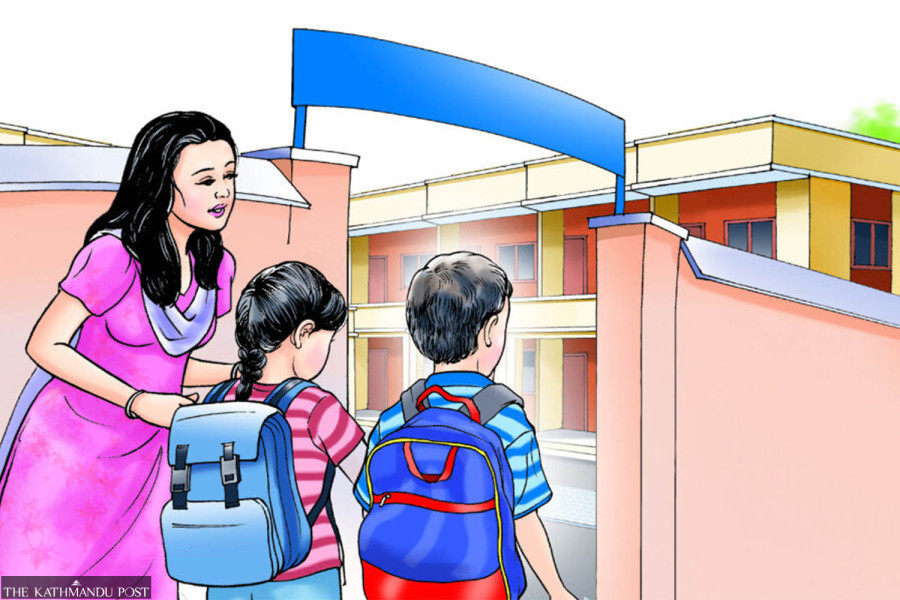National
Private schools another stumbling block for House subpanel on Education Bill
Lawmakers are on the same page that private schools cannot remain profit-oriented, but they have not found consensus on how to regulate them either.
Post Report
Despite months-long discussions and deliberations over the School Education Bill, a subpanel under the Education, Health and Information Technology Committee of the House of Representatives has failed to agree on a modality for regulating private schools.
While cross-party lawmakers are at the same point that private schools cannot be left profit-oriented, as the constitution mandates free and compulsory school education, they have not found a consensus on how to regulate them. Though most members of the CPN-UML’s Chhabilal Bishwakarma-led panel had floated the idea of converting private schools into trusts, no agreement was reached.
“Our panel will submit the report to the full committee tomorrow [Sunday], leaving it to decide the contentious issue,” Dik Bahadur Limbu, a Nepali Congress lawmaker in the panel, told the Post. “It is clear that private schools cannot run in the present form under this constitution. However, we could not find the right modality for regulation.”
The 10-member committee was given 35 days to discuss the amendments to the bill and finalise it. On May 6, I got 10 more days to prepare the report. With no agreement on some of the provisions, it will submit the report, leaving it upto the full committee to find consensus.
“It was an uphill task to find agreement on the bill with hundreds of amendments. We have successfully found agreement on most of the issues,” said Limbu. “We will share everything once we finalise the bill.”
He told the Post that the committee has agreed on 42 of the 163 sections of the bill. As many as 161 lawmakers from the ruling and opposition parties registered 1,758 amendments to the bill, which has 163 sections.
Other than regulating the private schools, the bill includes the management of community school teachers and their professional benefits; provisions for making relief teachers permanent through internal competition; the duration of early childhood development (ECD) classes and the facilities for teachers working there. Other debated topics include whether or not to continue the Secondary Education Examination (SEE), the process of selecting and appointing headteachers at community schools, and whether to retain the Education Development and Coordination Units at the district level and the Education and Human Resource Development Centre at the federal level.
The panel has agreed that the teachers would be under the local governments. However, the headteachers would be given more authority in managing the schools independently as a measure to lessen the interference of the local governments. The school teachers have been arguing that they would not work under the local governments as they act on political ideologies.
“As the constitution clearly says, school education is under the local government, we can not go against it,” said Limbu. “We have added some provisions to address the teachers’ concerns regarding the local government’s interference.”
If the bill gets endorsed, teachers can be transferred within the local units and among the local units once each. They can also take transfers to other provinces once.
Endorsement of the bill that has been pending in Parliament since September 2023 was one of the major demands of the teachers; they resorted to a month-long protest in the Capital. The two major ruling parties have agreed in writing that the lower house will endorse the bill by June 29.
The Education Committee will again discuss the bill to reach a consensus on all the issues before forwarding it for the lower house's endorsement.




 10.12°C Kathmandu
10.12°C Kathmandu














